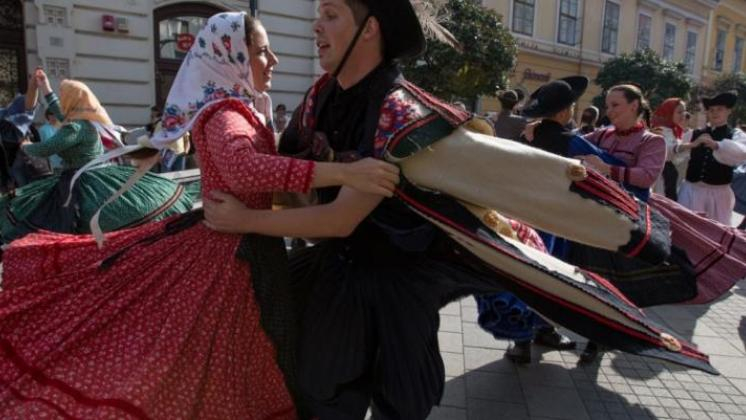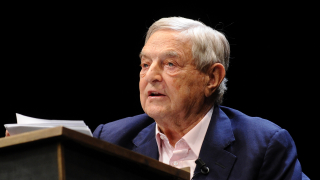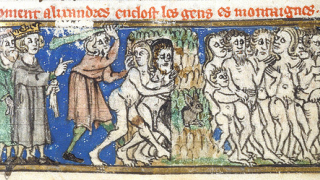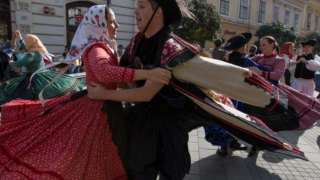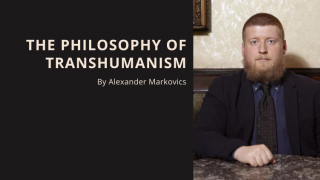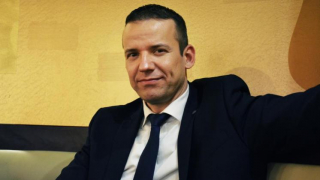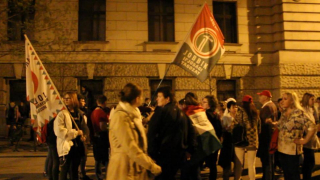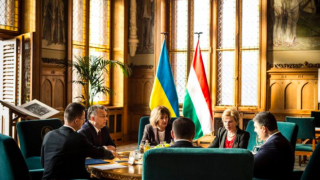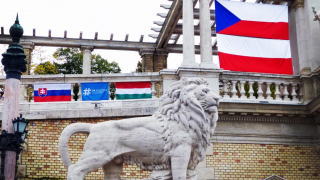Tibor Imre Baranyi: Who is the Enemy of Hungarian Identity?
The following is an interview with the Hungarian philosopher and theologian, Dr. Tibor Imre Baranyi, about the ideas of the Traditionalist René Guénon, the nature of Hungarian identity, the theory of Turanism, and the problems of illiberalism. Also, Dr. Baranyi shared his views on the possibility of the realization of the Fourth Political Theory in the real world, where liberalism continues to be the dominating, destructive ideology.
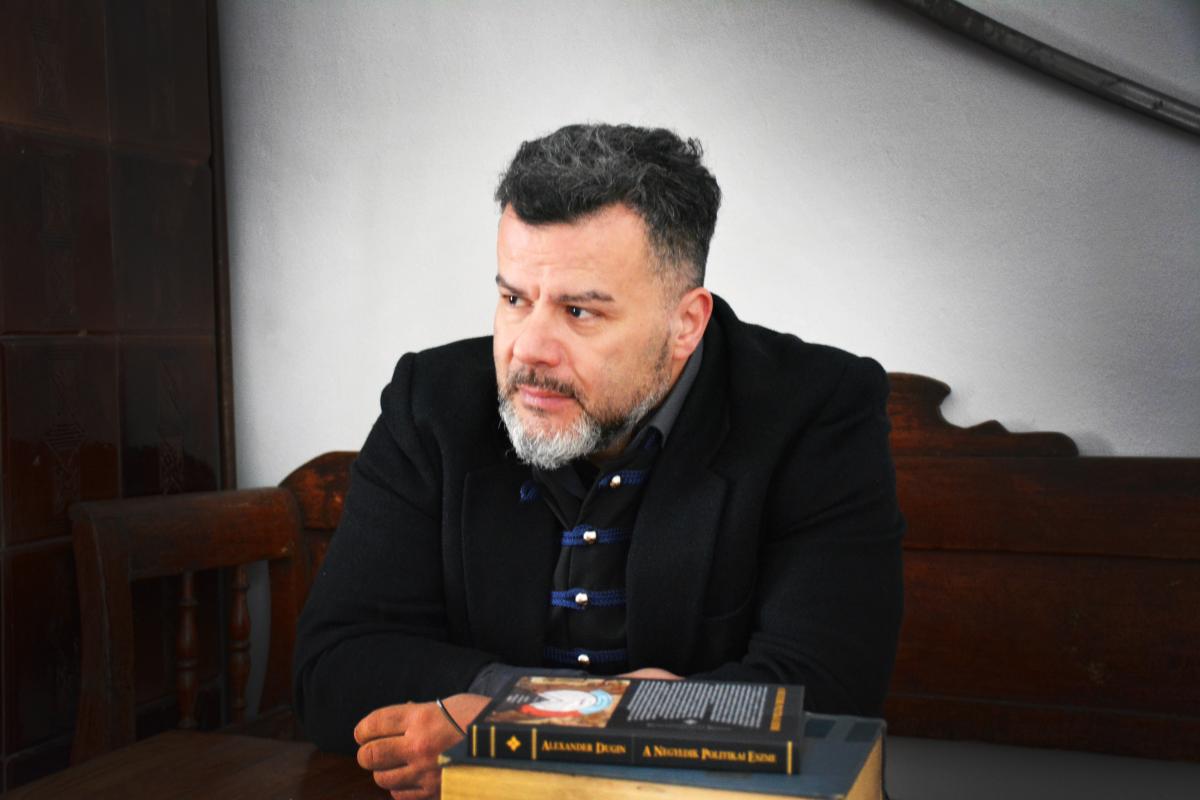
Photo: Geopolitica.ru
Let’s start with the most important topic: the worldview of René Guénon. What do you think about the reign of quantity as it is manifesting today?
I think that our understanding of the reality of this situation must be updated for our present day. Julius Evola said, “Guénon should certainly be considered a master for our times.” I also think so.
One of Guénon’s main works is The Reign of Quantity and the Signs of the Times. This is one of the distinguishing characteristics ofour times. Our age is more and more centered upon means rather than ends. The material world possesses two principles: one is essence, which is the principle of origins, or of the beginning, in spirit; the other is the principle of the end, which is materialism. The world is going from the essential, or spiritual, state into the material state.
One of the main characteristics of the world today is the prevalence of materialism and experimentalism. A lot of people are captured by illusions. There is a big difference between one’s ideals, philosophical ideals, and one’s practical way of life. I’ll give an example. Someone may have followed a religious doctrine for twenty years,but when he finds himself in a position where he has to make a choice – such as choosing a new type of car, where he wants the latest model of BMW – he will give this thing more value than his religious beliefs.

I would like to ask you about the philosophical problem of division. In many countries these days, we have no sense of community, and we are losing even our human qualities. Even the individual is being divided into parts – ideologically (one person, for example, can be simultaneously liberal, LGBT, and yet also possess some Right-wing characteristics), physically (transplants, genetic engineering, cybernetics), mentally. People are like puzzles . . .
They are in fragments.
Exactly. We are undergoing fragmentation, even in our brains. A lot of discussions are going on regarding robots and artificial intelligence. So, how do you see this problem? Could it go on forever? And what about the future of humanity? Where will it end?
These divisions are the principle of the devil. In Greek, διάβολος means exactly this. [1] Regarding the end of this, I think it will occur endlessly in time, it will happen right up until the last moment.
The main phenomenon here is individualism. This is very closely correlated with the concept of identity. “Who am I?” How does a man answer this question? There is a big difference between Traditional identity and modern identity. Traditional identity means the universal and the sacred. Universal means that there is no division into categories,because I’m universal and identify with the Absolute. Sacred means there is a connection to the origin, which is the principle of everything, that which contains everything inside it. When the cosmic cycle of humanity is undergoing its descent, there is a point where this Traditional identity begins to be eroded. And the first major manifestation of this is individualism.
Individualism and modernity are almost synonymous, because a modern person identifies most closely with his or her body, with the psychophysical organism. For a modern person, all other things and people outside of himself are mere objects, and in fact are enemies: other nations are enemies, nature is the enemy, and so on. The Traditional identity thus begins to be divided.
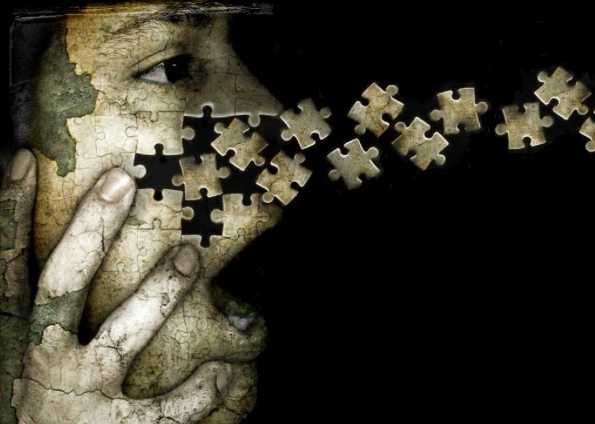
In this anti-Traditional and modern type of identification, classifications are established. In Leftist ideology, it is class. In the Third Political Theory, it isthe race or nation. This is also part of the phenomenon of division. I think these divisions will continue until the end. The manifestation of individualism in politics is liberalism. I suppose liberalism won the battle of ideologies because the other two – Marxism on the Left and fascism on the Right – are based on identity at a slightly higher level. Class and the nation are on a higher level than simple individualism, where you identify yourself with nothing but your body, your psychophysical organism, rather than with anything outside yourself.
This crisis of identity can go on endlessly in time. What starts in time, will end in time. It will be the pure reign of quantity. In Christian terminology, the time of the reign of Antichrist will come.
Since we’re talking about identity, let`s talk about the Hungarian case. There is a lot of discussion about Turanism [2] in Hungary, with many people either supporting or opposing it, because most scientists support the Finno-Ugric theory about the origin of the Hungarians. What do you think about Turanism?
One of the chapters of my book is about Turanism. According to the Finno-Ugric theory, the Hungarians originally belonged to the Finno-Ugric tribes. The extreme Hungarian nationalists consider it to be false. The other view, which is probably much more realistic, is that we originally came from Asia, specifically the Turanian region.
It is very difficult and complex subject. If a Hungarian goes to Turkey and talks about Attila, every Turk understands what he means, and says, “We are brothers.” [3] But most Hungarians see it otherwise: they see the Turkish people not as brothers, but as conquerors.
Yes, for many people it seems like a contradiction that Hungarians can consider Turks as conquerors and at the same time as brothers.
What is beyond discussion is that we came from Asia. At least, most Hungarians are sure of that. But the real question is, from what part of the East, exactly?
Over the centuries, there have been many different viewpoints on this from various political actors. Hungary has had a very difficult history with other nations. We are in a triangle between three competing great powers: Germany, Turkey, and Russia. The Hungarians have always been forced to find their place within this triangle.
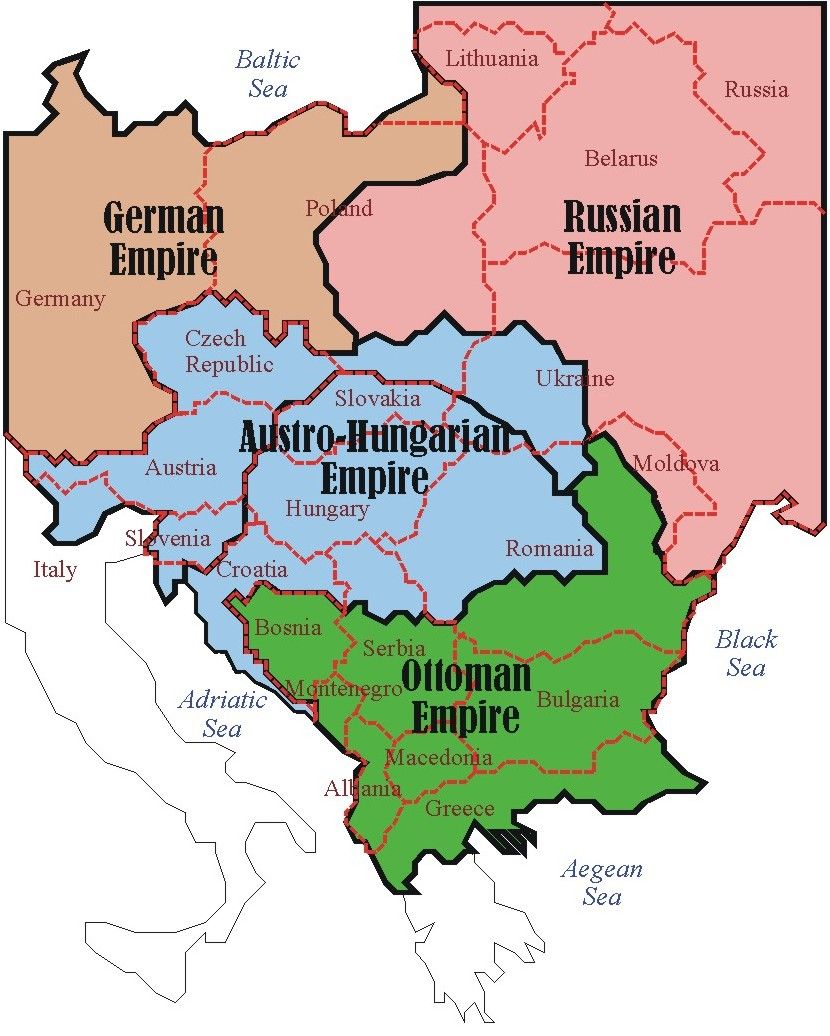
One of our Turkish friends once told us that in school he had learned a completely different version of history. The Turks don’t think about Hungary as a place of conquest. At the end of the Middle Ages, the degeneration of Christianity was a problem. The Reformation was taking place at the same time that the Ottoman Empire arrived at the borders of the Hungarian Kingdom, and according to the Turks, they came to bring about a religious restoration. Few people know this, but one of the Turkish sultans sent a friendly letter to the Hungarian King stating that they came not to fight but to restore true religion. And in fact, there were many years when we were living together peacefully. But then we had problems, and the wars began. Islam is the newest religion among all the Traditional religions. By their own logic, the people of Islam came to Hungary as brothers, in order to save Christianity from its decline. But we didn’t understand this.
When the Ottoman Empire conquered Hungary, if somebody had taken Islam on its own terms, there were a lot of possibilities for a synthesis that could have been developed in that situation. But almost nobody accepted Islam. Islam in the middle of Europe was so foreign that people couldn’t accept it. In a political sense it was problematic, too, because if we had converted to Islam in the sixteenth century, the surrounding Christian countries would very soon have destroyed the Hungarian Kingdom.
What is the modern understanding of Hungarian identity? How do you make a distinction between what is Hungarian, as opposed to European or something else?
The vast majority of Hungarians possess a sense of their national identity. The basis for this identity is mainly historical. We have a lot of heroes in our history, and our sense of identity is based on this. But only a very small part of these people have a religious identity. We are Christians, but today this usually only has a superficial meaning. It doesn’t really affect people in their everyday lives. The lives of most Hungarians are typically Western in almost every respect. So, our identity is based on the nation and its history.
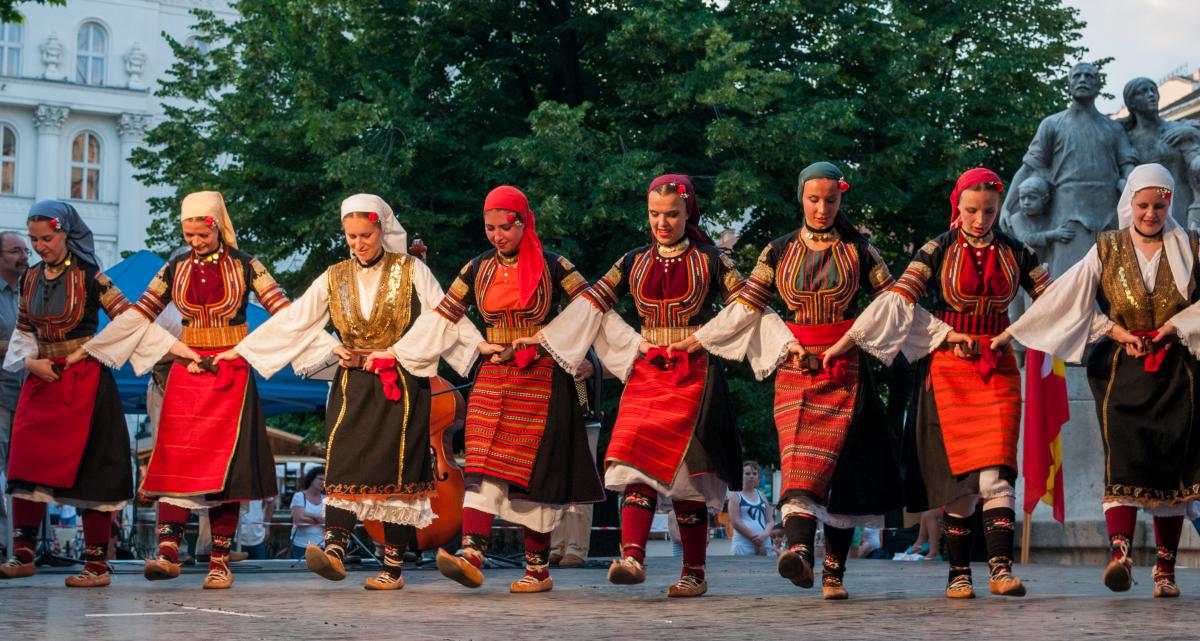
Some people are of the view that if you focus exclusively on history, then you leave real-life questions and the issue of identity unanswered. For example, you won’t have a particular national message that is clear for other peoples. What is the future of Hungarian identity, in your opinion?
If a Hungarian wakes up in the morning and looks around his room, and asks himself, “For what reason did I wake up as a Hungarian?” I suppose he doesn’t have an answer for this. This is typical throughout all of Europe. Only in some Eastern countries like Turkey or Iran do people have some answers to this question.
So, I don`t know what the future is for being Hungarian. You can’t know it from the words coming from our politicians. Usually they merely say things like, “We want to live better, we want more money, we want good jobs” – typical liberal thinking. But there is never anything serious in these thoughts. (Maybe the only exception is in the cases of those who want to help the development or conquest of Zionism.) But if you are human, then your real problem is that you are getting older, then finally one day you will get sick, and then you must die. These are the three main questions of human life. I don’t see any answers for that. If you have three times as much money, you will still not get any answers to these questions. This is a real problem. It is what I was talking about in the context of Guénon’s position on materialism. How much money you can get for doing a particular job is not the real question of life.
What is really great in Dr. Dugin`s book is that there is a positive vision for the future there. In our post-Communist age, we really need the vision that is implicit in the Fourth Political Theory.
It’s interesting that you mention the Fourth Political Theory. In Dr. Dugin’s essay entitled “Globalisation and Its Enemies,” he makes an important point: the ideologist of liberalism, Bernard-Henri Lévy, is worried that the globalist order could still be crushed. He sees five “ghost empires” coming into existence that could become enemies of liberalism. What do you think of these changes? Is it possible to realize the Fourth Political Theory in the real world?
I agree with Dr. Dugin that we are in a state of change. The twentieth century saw the war of ideologies, and liberalism was the winner. But we have already gone past the unipolar moment.
From a strictly Traditional point of view, we could view Islam as an alternative, being part of the Traditional paradigm. Islam is under fierce attack because liberalism wants to destroy it, as its main enemy. But it’s not so easy, because Islam is still strong. When President Bush said, “This is not a war against Islam,” I think he meant exactly the opposite: it is a war against Islam. Islam is the last Traditional religion that is truly living – not like Christianity, which appears to be dead. It’s like when the spirit leaves an organism, but the organism continues to live – it is still moving about, but its essence is gone. Liberalism is planning to destroy the essence of Islam in a similar way.
Islam as a religion yet retains its essence. However, of the large numbers of Muslims who come to the West, many have problems with their identity. This is especially true for the generations who are born there and who are forced to live in the liberal paradigm. For how long can they hold on to this essence? And why they go to the West in the first place?
There is a teaching in Hinduism which says that when a Hindu leaves the Indian subcontinent, he is no longer a Hindu. This is not Islam’s teaching. But I think it should be transplanted into Islam. If a Muslim leaves the world of Islam – meaning the world of Islam as it has been understood historically – he loses the essence of the religion. We can ask, “Why did he leave the Islamic world and come to France or Germany?” Because in Germany the religion is in bloom, and there they can live a more religious life? The answer is no. So, why do they go? The real reason is because they want a Mercedes and white women. This is a stereotypical answer, but we can clearly see that they are not coming for any reason having to do with religion, but with an eye on the loaves and fishes. There are a lot of problems in Syria and Iraq. Some of them are genuine refugees. But others just want to have a better lifestyle in material terms. If someone merely wants to escape war, why don’t they just go to another Muslim country, where there’s no war? This is the question. Why do they go to rich and atheistic Germany?

We had a problem with the migrants, but they were merely using Hungary as a transit zone, in order to reach other countries. They didn’t want to stay here. Why? Because we are not among the richest countries. So, clearly, their motives are purely materialistic. And if this is the case, then they are not practicing true Islam, and the people who follow these desires are not really religious. Some people say that Europe is facing the problem of Islamization. But it’s not really Islamization. It is simply guys who want a better life. It is something else.
Once when I was in Germany, I asked a friend to show me the most dangerous places where Muslims live. It was near Frankfurt. In the middle of the Muslim part of town was the big – and of course empty – Christian church, with a three-meter (at least) cross on top. There was only one mosque – and we had to search for it! I’ve seen no difference between the situation there and the Muslim areas of other places in Europe.
So, I think that the problem of so-called migration is actually being organized by other forces, maybe outside Islam. These so-called migrants come with money, expensive phones and so on. For example, I once had a conversation with Mr. László Toroczkai, the Mayor of Ásotthalom, which is located on the Serbian border.[4]He said that many of these so-called migrants brought expensive phones with them, on which they had photos stored of the situation with the so-called “Islamic State” (Daesh) and its killings. These photos were not copied from the Internet. They had taken them themselves.
There might be two reasons for this. The first is that the Middle East project – namely, the project of a greater Israel – might require that some areas be emptied. The other is that they might want to create chaos in Europe, to make European people believe that Islam is a terrible thing. Islam, in itself, is a beautiful religion. If you don’t read the Qur’an and you haven’t been to any Islamic countries, you can’t say anything about Islam. And because of all this chaos, Europeans don’t get to see what’s really going on in the Middle East.
What do you think about the idea of illiberalism, which was first articulated by Mr. Orbán?
I know it very well, because I worked for a time in the political field, or near it, anyway. I know this message. It is not agenuine alternative ideology. It comes from the past, mainly on the basis of the Third Political Theory. It is an adaptation of it to present circumstances, but I think it`s not enough, because liberalism still exists, and it feels very good about itself, and a superficial illiberalism is not a real weapon that can be used to counter it. There are a lot of quite primitive forces working in this field, in a really chaotic, disorganized, and ineffective state. So, I think illiberalism, without offering a genuine ideological alternative, can’t defeat liberalism. It’s not enough. That’s why Jobbik couldn’t find a solution and ended up tragically turning in the direction of liberalism. Almost all forms of nationalism today operate within the paradigm of liberalism, not outside it. This is important to understand.
What is your opinion of the Hungarian Prime Minister’s governance?
In its rhetoric, it is nationalism and illiberalism, but when you look at the really important things in it, it is typically liberal. It is a systemic liberalism, and everything is understood within this system. What is outside the system is irrelevant – there is no power, no army, and so on there.
The question is in terms of what we compare it to. In relation to the Western world, we are illiberals. But in terms of ideals, we are such huge liberals! So, if we are tolerant, we say it is good to be illiberal, to begin to look for a way out of liberalism, but I suppose this is only a dream. But I hope it becomes a reality, of course – and for that we need friends. Here, some people think that Russia might provide a real alternative to the unipolar system.
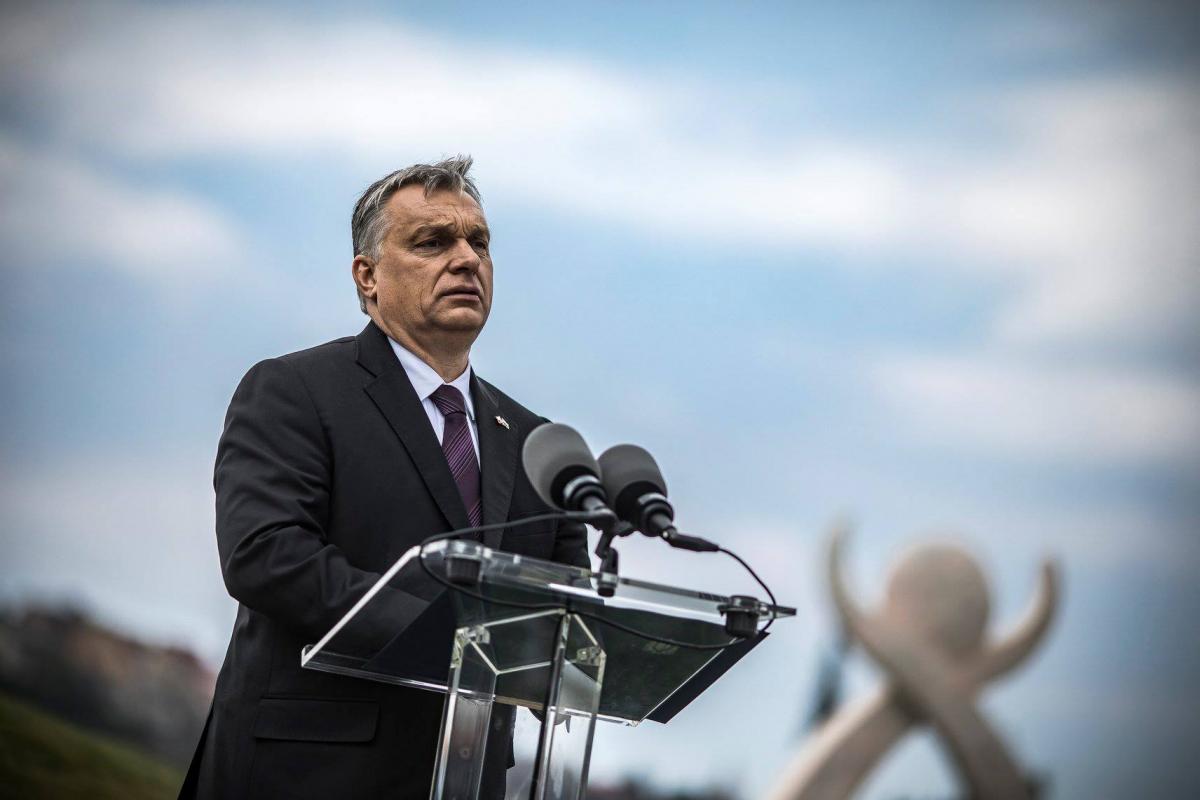
[1] From the verb διαβάλλω. One of its meanings is to divide, and to cause quarrels.
[2] Turanism is a theory which postulates an Asianorigin forthe Magyars. The term “Turanian” was coined by Max Müller (1823-1900), a German Orientalist scholar. He called all languages that did not belong to the Indo-European or the Semitic language families Turanian. According to the ideology of Turanism, Hungarians are related to the Altaic peoples, such as Turks, Azeris, Tatars, Kazakhs, Mongols, and even the Tibetans and Japanese.
[3] Some supporters of Turanism think that Árpád, the leader of the Hungarians at the time of their conquest of the Carpathian Basin, was a direct blood descendant of Attila. But there are other agruments demonstrating close connections between the Hungarians and the Huns as well.
[4] When the migrant crisis reached its peak in 2015, this small town was where a huge number of illegal migrants crossed over into Hungarian territory, and thus the European Union’s Schengen Zone, inside of which there are no further border safeguards.

